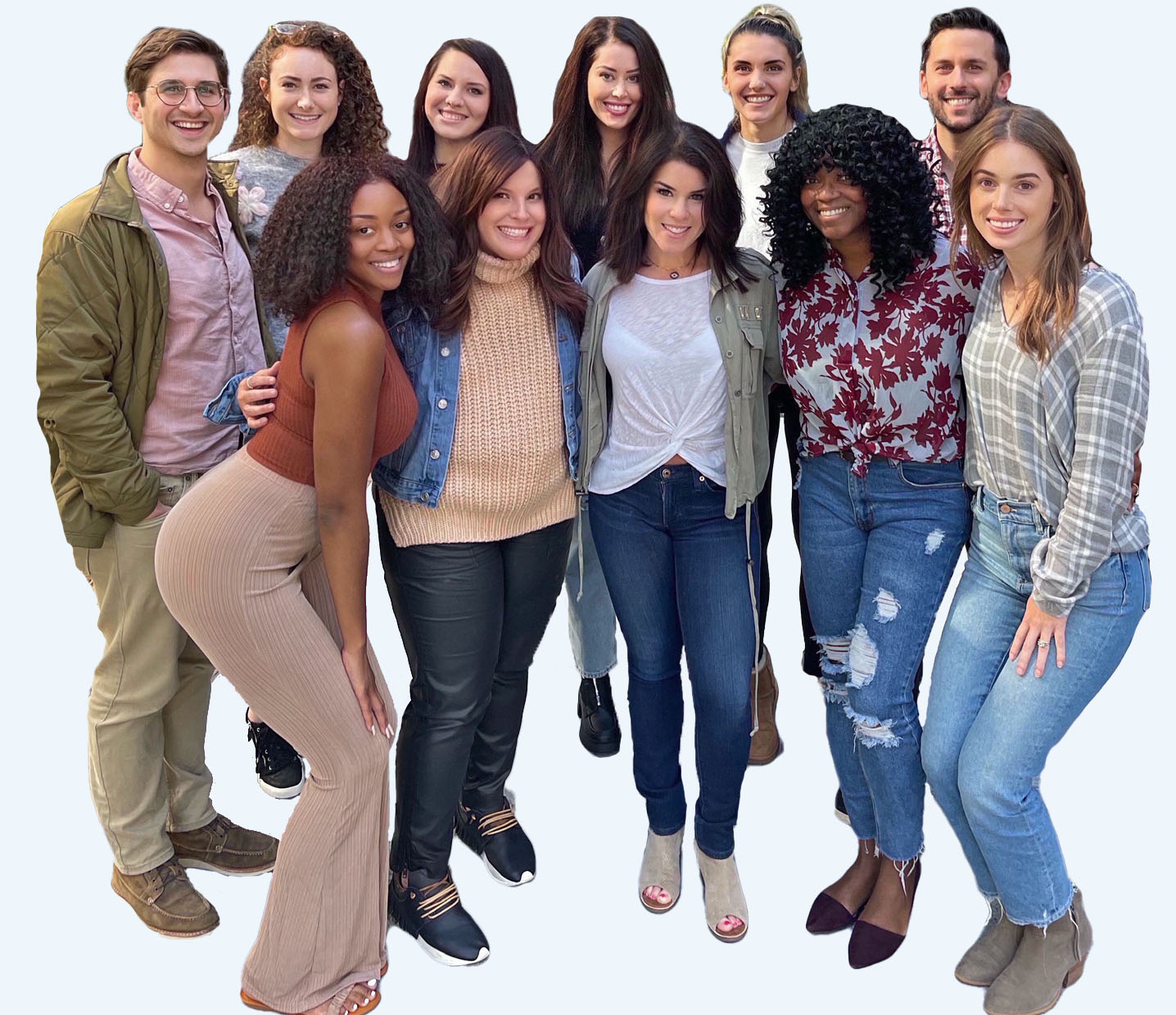Dual Diagnosis Treatment Center in Georgia
Dual Diagnosis
The Berman Center offers treatment for occurring disorders through dual diagnosis treatment in Atlanta.
Dual Diagnosis Treatment
Choosing to get help takes courage. It’s also the first step toward recovery. However, recovery isn’t a one-time decision; it’s a decision you make every day. The process of recovery can be improved with drug and alcohol rehab programs, but there are many types of rehab programs.
Reach out to our team to tour our Georgia dual diagnosis treatment center.
Adults 18+
Addiction
Adults 18+
Mental Health
Adults 18+
Ages 14-18
UNDERSTANDING TREATMENT
What is Dual Diagnosis Treatment in Georgia?
Co-occurring treatment, sometimes called dual diagnosis treatment in Georgia, is designed for people who have mental health and substance abuse issues concurrently. Almost eight million adults struggle with substance abuse and mental health disorders and need Atlanta dual diagnosis therapy. There are many options, like medication management programs and detox services, to provide individualized help based on specific mental health issues.
To determine which individualized program will help you achieve lasting success, call our admissions line at 770.336.7444.
Types of Dual Diagnosis Treatment in Atlanta
Over fifty percent of people who need Atlanta dual diagnosis therapy don’t get it. But you don’t have to be one of them. The Berman Center offers an Atlanta partial hospitalizaton program, dual-diagnosis program to treat various dual-diagnosis conditions.
The most commonly occurring dual-diagnosis disorders include depression and addiction. Major depressive disorder is often linked with alcoholism for people who want to temporarily feel better or mask their symptoms around others.
Anxiety is the second most common dual-diagnosis disorder behind depression and is often associated with alcohol or prescription benzodiazepine addiction. Our facility can help treat both conditions simultaneously so that you don’t turn to self-medication as a coping mechanism.
Another common dual diagnosis condition is bipolar disorder and addiction to drugs or alcohol. Many people with bipolar disorder fail to get the right Atlanta dual diagnosis therapy, so they treat depressive symptoms but not manic symptoms or depressive symptoms. It is not uncommon for clients with bipolar disorder to struggle with multiple addictions, relying on one substance during manic episodes and another during depressive episodes. At our Atlanta dual diagnosis treatment center, we can give you the tools you need for recovery from both.
PTSD can last for years if you don’t get the right Atlanta dual diagnosis therapy. Individuals struggling with PTSD commonly abuse things like benzodiazepines, prescription opioids, and alcohol. But even seeking treatment for addiction falls short of what clients really need by not providing trauma-informed care to avoid retraumatization and address substance abuse disorders. At our Atlanta dual diagnosis treatment center, we provide trauma-informed care for people struggling with PTSD in addition to evidence-based therapy to treat addiction.
Get the right dual diagnosis treatment in Georigia today.
We Work With Most Insurance Carriers -
Please Contact Us For More Information.


Stories of Hope
Ross
"I've been to multiple IOPs in my life and The Berman Center is by far the best. It's been an enormous help to my recovery and my mental health. The staff are amazing and you can tell that they truly care for their clients."
Michelle
"The Berman Center was, is, and has been a place of refuge during the most challenging times of my life thus far... Because of my time at The Berman Center, I know what it means to have peace of mind."
Nashon
"With the help of The Berman Center, I was able to regain control of my life and find purpose. I learned to not allow my addiction or mental illness to define me. The staff makes you feel like you are part of a loving family."
FILL OUT THE FORM & SPEAK TO SOMEONE RIGHT NOW.
Request a 100% Confidential Callback
Choosing a Dual Diagnosis Program
When you choose a drug rehab program, you need to decide which level of care is most appropriate for your situation. This can include Partial Hospitalization Programs (PHP) or Intensive Outpatient Programs (IOP).
You will come to our facility during your treatment during the day, moving through a step-down approach. PHP meets five days a week from 10 am-3:30 pm. This program requires a ten-week commitment, four of which are PHP and the other six of which are the next step down, IOP. IOP meets three days a week from 10 am-1 pm. If you are starting an IOP directly, you can expect an eight-week commitment.
Step-Down Approach: When the number of services and sessions you receive becomes less intense and less frequent over the course of your treatment.
We emphasize this step-down approach because it helps you adjust to your regular routine. If you decide that you need more time during treatment, we can discuss different treatment lengths and costs. For example, you might want to begin with a PHP but continue with an eight-week IOP instead.
Don't Wait Any Longer
The Berman Center offers you high-quality dual-diagnosis treatment in Atlanta that provides you with the foundation needed for long-term recovery.
Choosing Your Georgia Dual Diagnosis Treatment Center
When evaluating options for dual diagnosis treatment in Atlanta, you should consider The Berman Group. Contact The Berman Center today if you are looking for dual diagnosis treatment in Atlanta.
At our Atlanta addiction treatment center, we provide access to a range of therapies so that you can work with modalities in your program that are best suited to your addiction and mental health disorders.
For example:
- We offer participation in Twelve Step programs for people struggling with alcoholism or drug addiction.
- Clients who are struggling with co-occurring PTSD can receive trauma-informed care so that they avoid retraumatization during their recovery.
- Our Atlanta dual-diagnosis therapy program involves family counseling and couples counseling for people with bipolar disorder whose family members need to receive education about the condition as well as learn how to improve communication and foster support at home.
- Individuals struggling with co-occurring mental health disorders like depression or anxiety might prefer participation in cognitive behavioral therapy, dialectical behavioral therapy, and yoga.
We understand how important it is for you to have control during your recovery, which is why both our PHP and IOP options give you designated times to choose the therapies you prefer. You can choose from things like:
- Experiential therapy
- Acceptance and Commitment Therapy
- Attachment-based family therapy
- Family Counseling
- Expressive arts
- Nutritional counseling
- Narrative therapy
- Yoga
- Twelve-step programs
- Art therapy
- Dialectical behavioral therapy
- Cognitive behavioral therapy
- Couples counseling
When you evaluate different treatment facilities, you can take inventory of which holistic modalities they offer. With the Berman Center, we specialize in yoga and physical fitness.
Yoga can prove extremely effective in managing symptoms of major depressive disorders, anxiety disorders, and substance abuse.
Throughout initial treatment, clients can struggle with feelings of depression, anxiety, loneliness, or fear. The recovery environment can bring great stress as individuals talk through family relationships and childhood trauma or sit in group sessions trying to apply new coping techniques.
Yoga doesn’t require any type of expertise or familiarity with the practice to yield results. Instead, it allows you to sit with your thoughts and recognize them for what they are. For example, some clients might feel anxious or stressed during their recovery, but sitting in a yoga position or moving through a yoga flow can help them stay grounded, identify those feelings, and figure out where they are coming from.
Sometimes the easiest way to control difficult emotions is to appreciate that they might be based on worst-case scenarios, which means they are a bit of an overreaction or based on inaccurate assumptions about how other people might feel.
The support you receive during your treatment doesn’t end when you leave our Atlanta dual diagnosis treatment center. After you complete your program, we ensure you still have a place for connections.
The Berman Center offers an alumni program for adults and adolescents. Our adult alumni program keeps you connected to like-minded individuals after leaving our care facility every second and fourth Wednesday of the month.
You can participate in bi-weekly meetings that are both informal process groups and outside events. Each event looks different and might include escape rooms, bowling, game nights, or putt-putt golf. These events are paid for by the Berman Center and offer a chance to participate in sober activities that offer networking and mental health support.
Our adolescent program promotes connection and community for those who have completed one of our programs through meetings at Ignite at the Berman Center during the same time.
The Berman Center offers individualized care that focuses not just on what you need most but what you need daily. Our facility emphasizes a soul-to-soul connection where you invest in your recovery in a supportive community and learn to develop an improved sense of self.
Want to learn more? Call our team to set up a tour and talk about your needs.
GO FROM APART TO BELONGING,
LONELY TO CONNECTED,
DEPRESSED TO JOYFUL,
WITHDRAWN TO ENGAGED
Find Your Individual Path to Long-Term Healing.
Contact our caring team today to learn more about our top-rated outpatient mental health treatment in Atlanta.